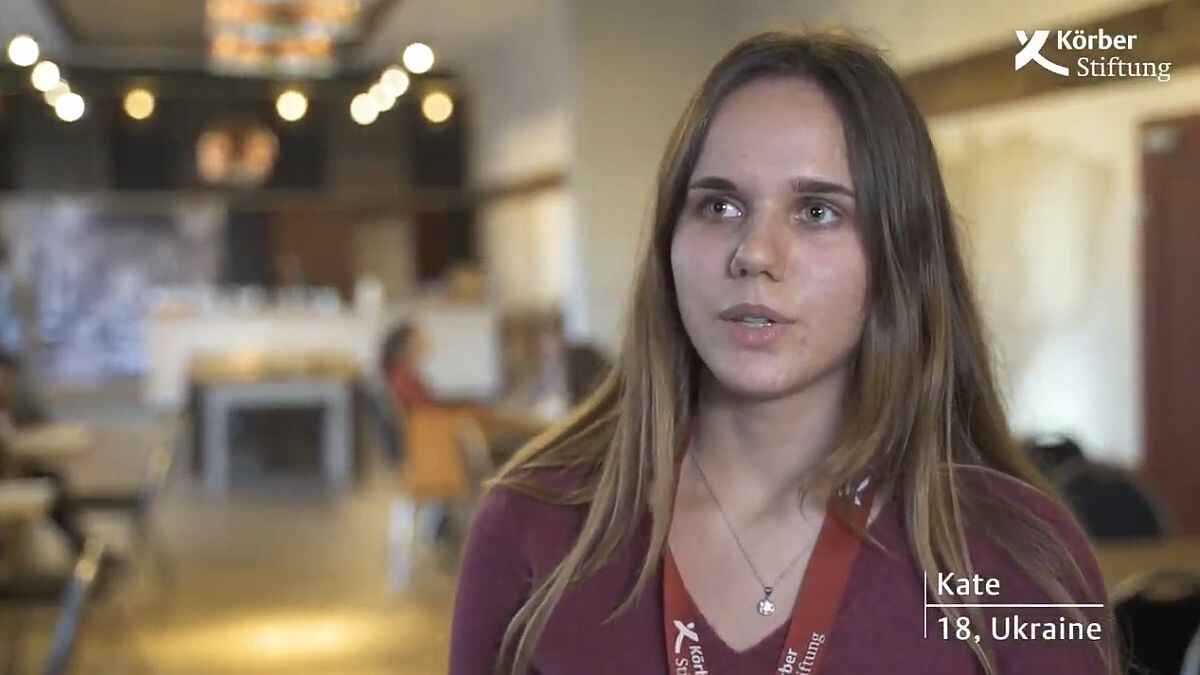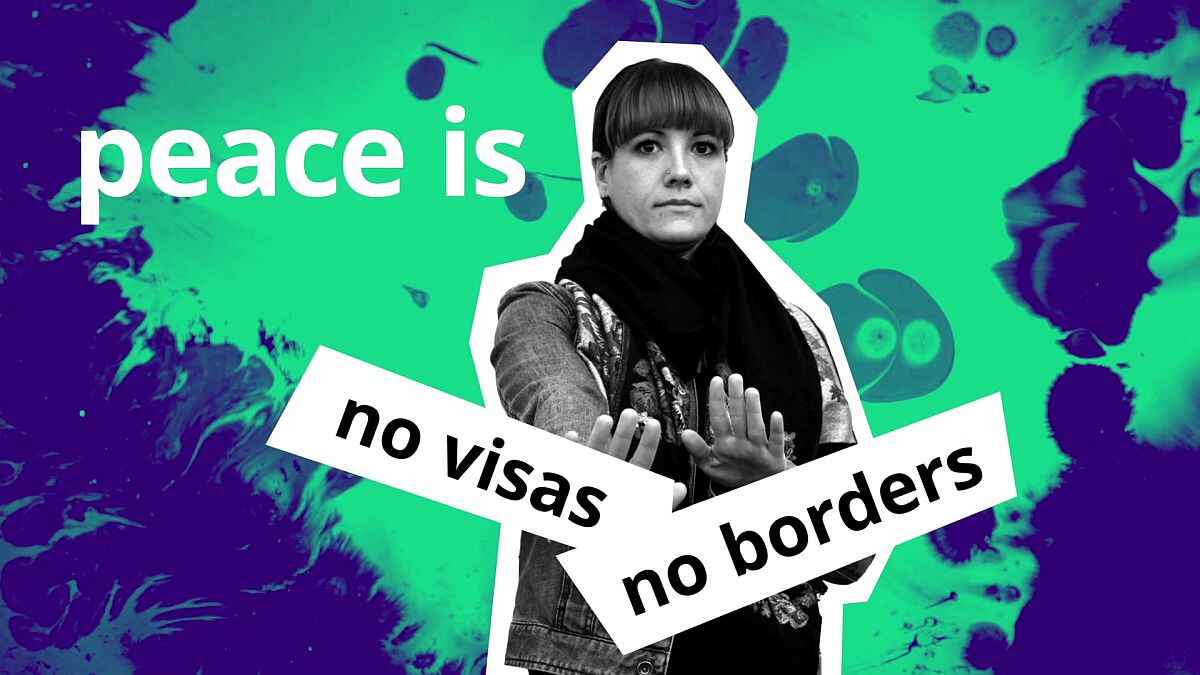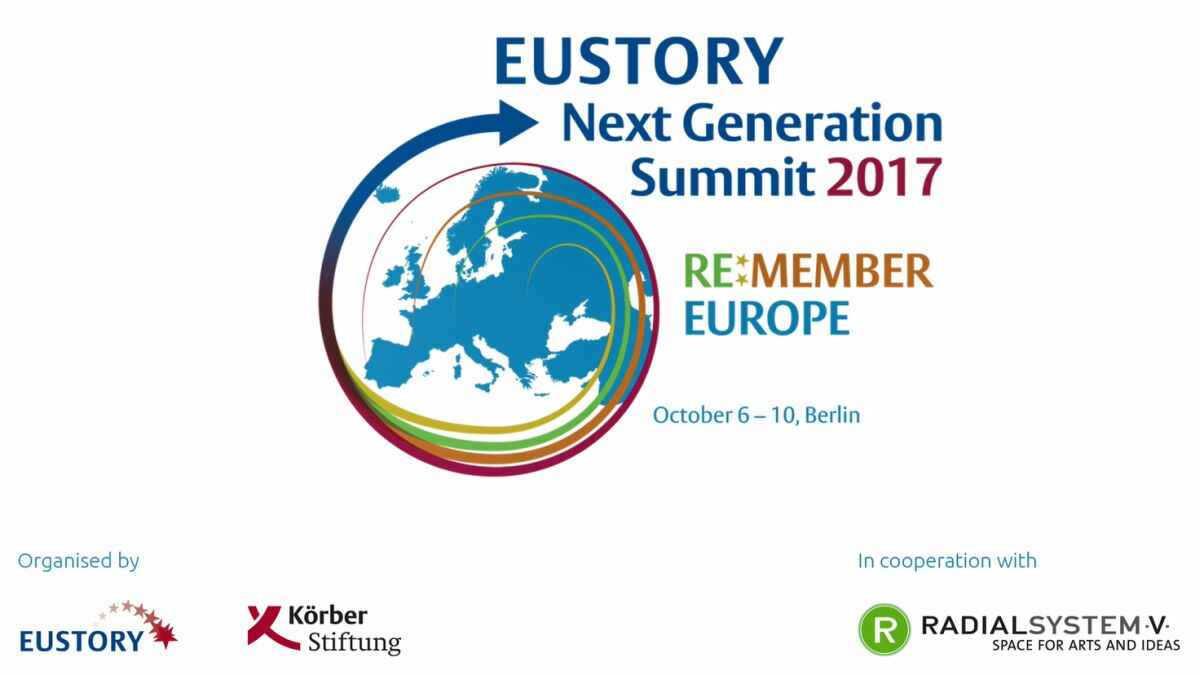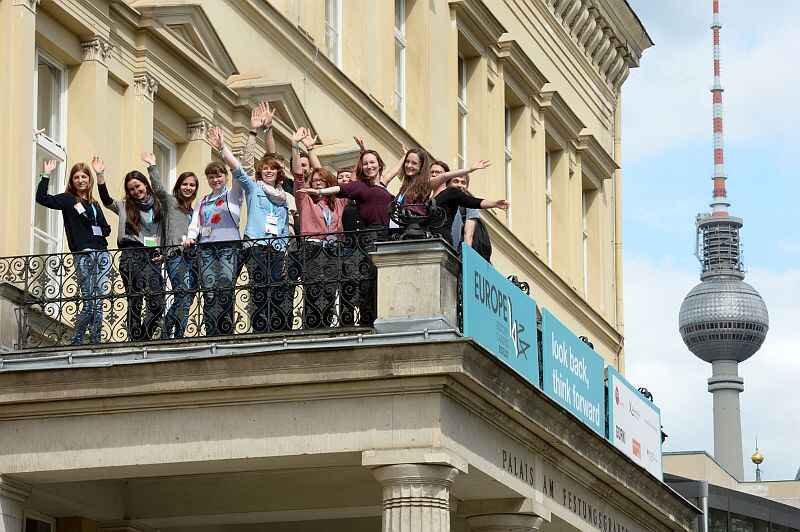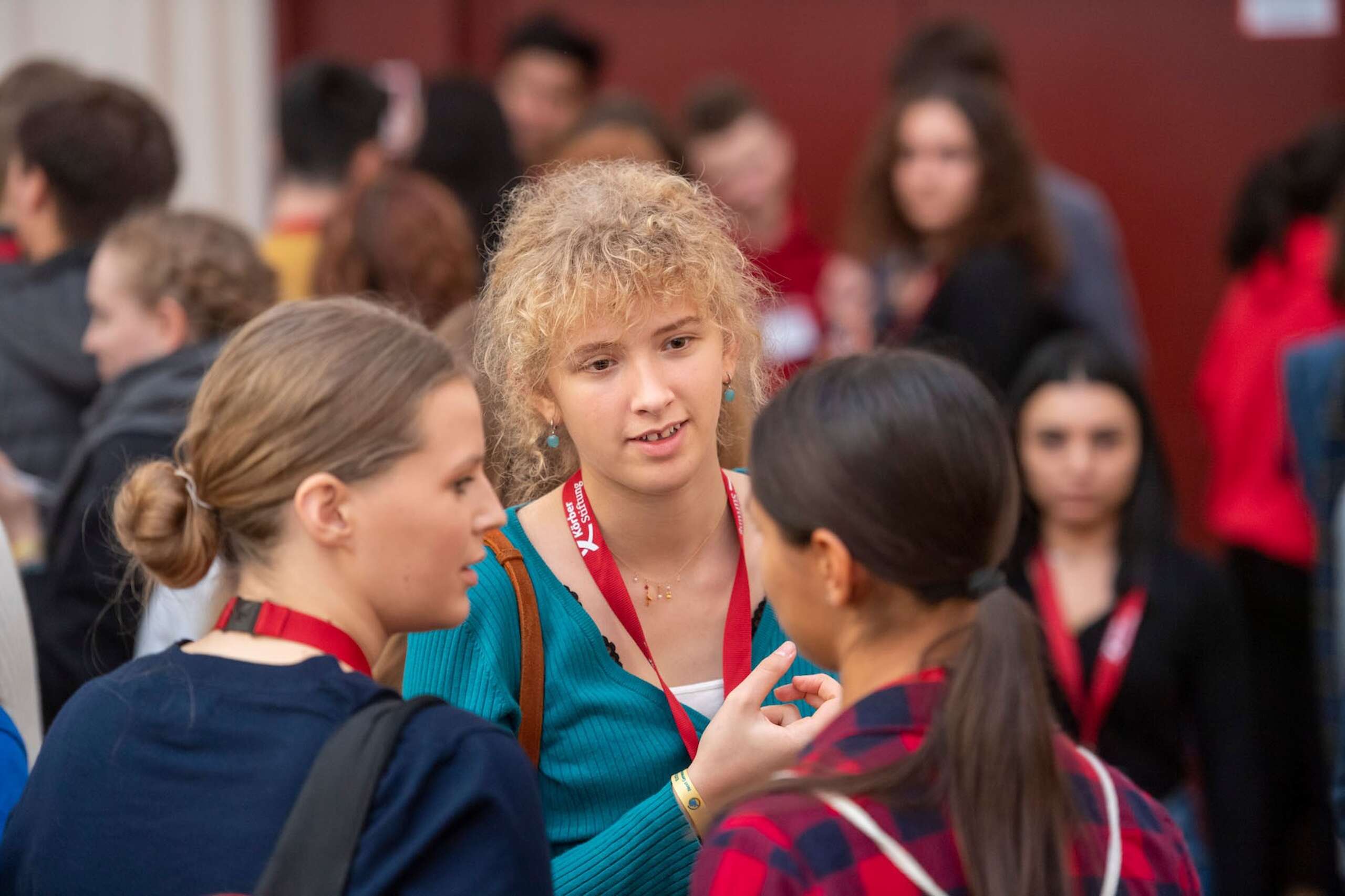
EUSTORY Summit
Photo: Körber-Stiftung / David Ausserhofer
To what extent are historical experiences from one’s own family, personal place of residence or country of origin still relevant today? What separates and what unites young people from Europe and its neighbouring countries?
With the annual EUSTORY Summit, we offer prize winners and alumni from the more than 20 national history competitions of the EUSTORY Network the opportunity to deal with questions of history policy, remembrance and identity by using various creative approaches.
With the support of experts from science, art, journalism, culture and politics, around 120 participants aged between 16 and 25 experience a multi-day history festival with a colourful programme. In workshops and intercultural dialogue formats, they develop cross-border, innovative forms of a critical and multi-perspective approach to history.
With changing workshop partners such as the House of European History in Brussels, the Franco-German Youth Office (DFJW), the Council for the Baltic Sea States (CBSS), the German Centre for the Loss of Cultural Property or the Spanish Real Maestranza de Caballería de Ronda (RMR), each EUSTORY Summit guarantees new expertise, changing focal points and diverse perspectives.
Curious? Insights into the project results of all EUSTORY Summits from 2017 to 2019 can be found on the EUSTORY History Campus.
“This project really opened my mind. It made me look at life, politics,and social issues under a new light.”
Leonardo, Summit participant from Italy
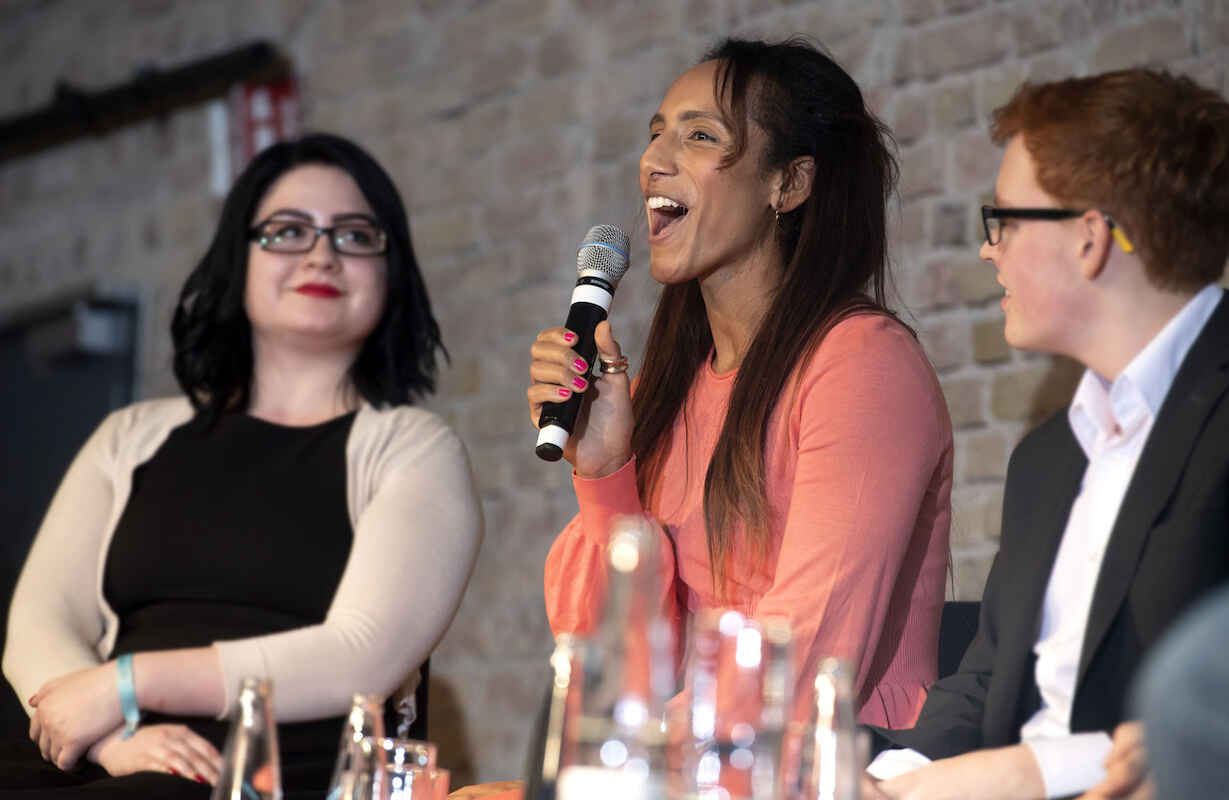
Photo: David Ausserhofer 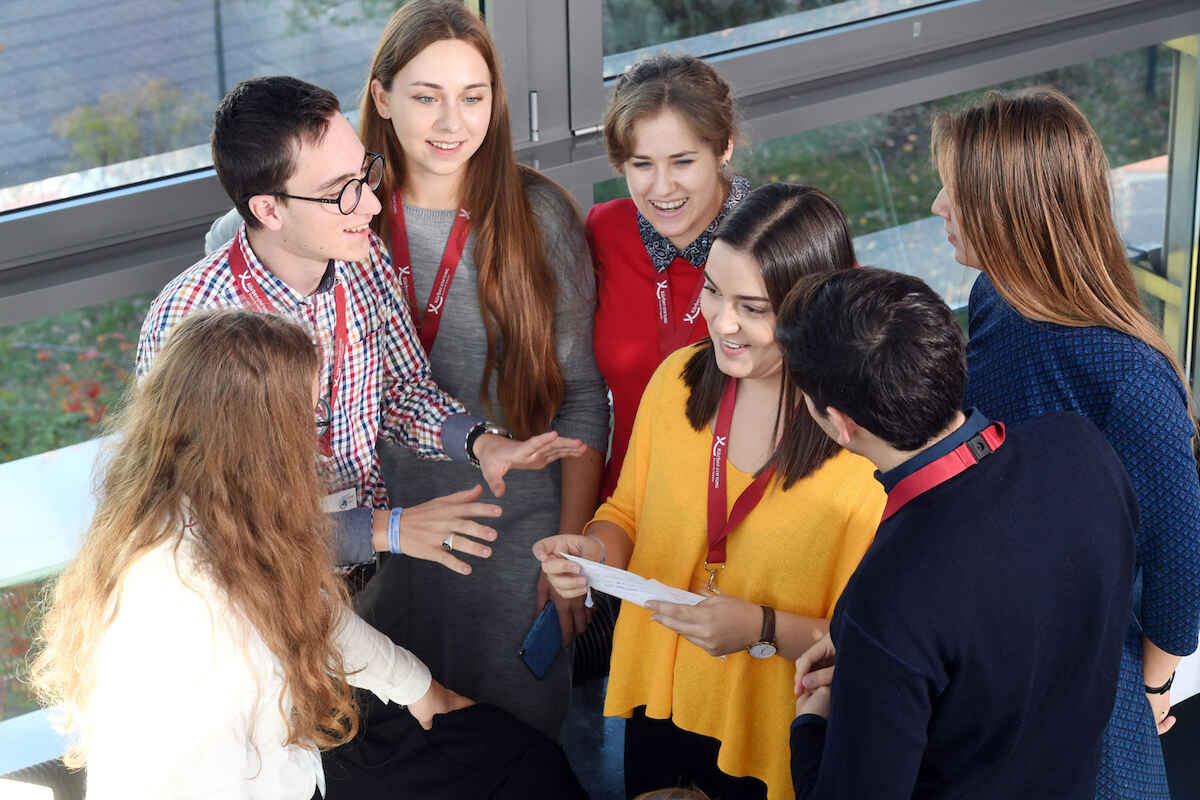
Photo: David Ausserhofer 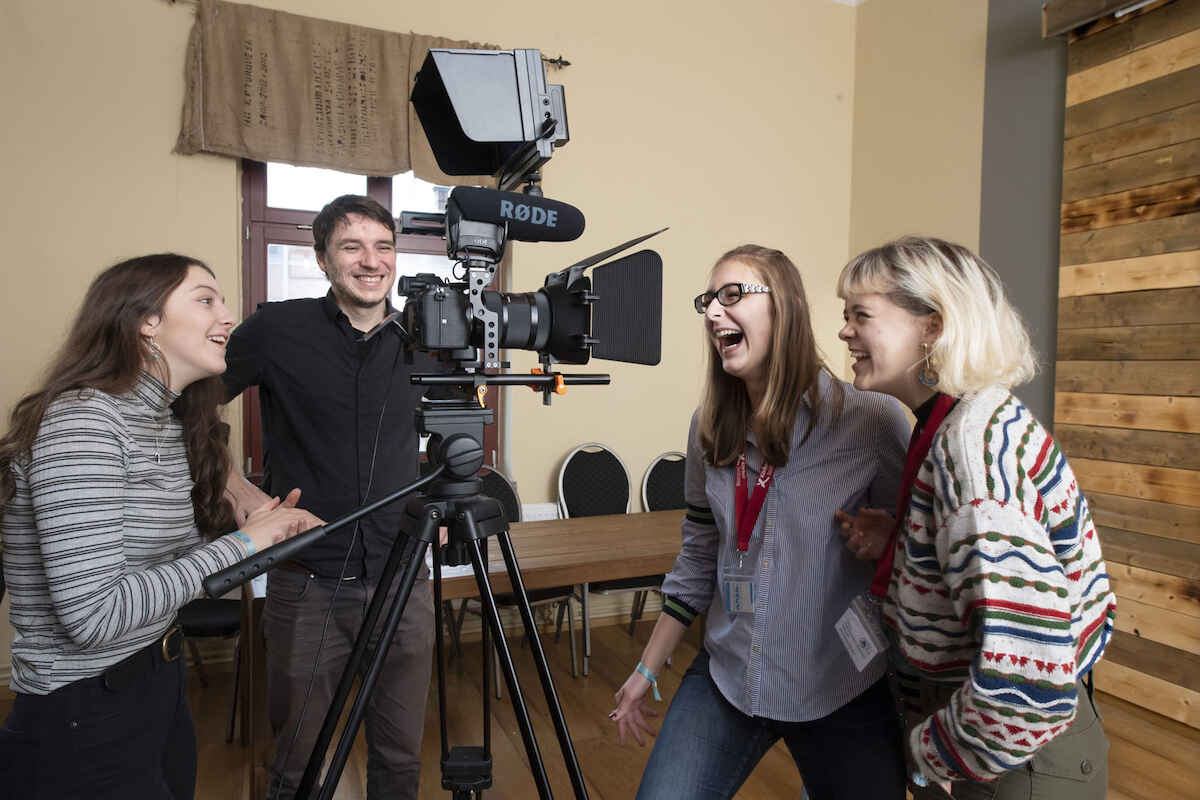
Photo: David Ausserhofer 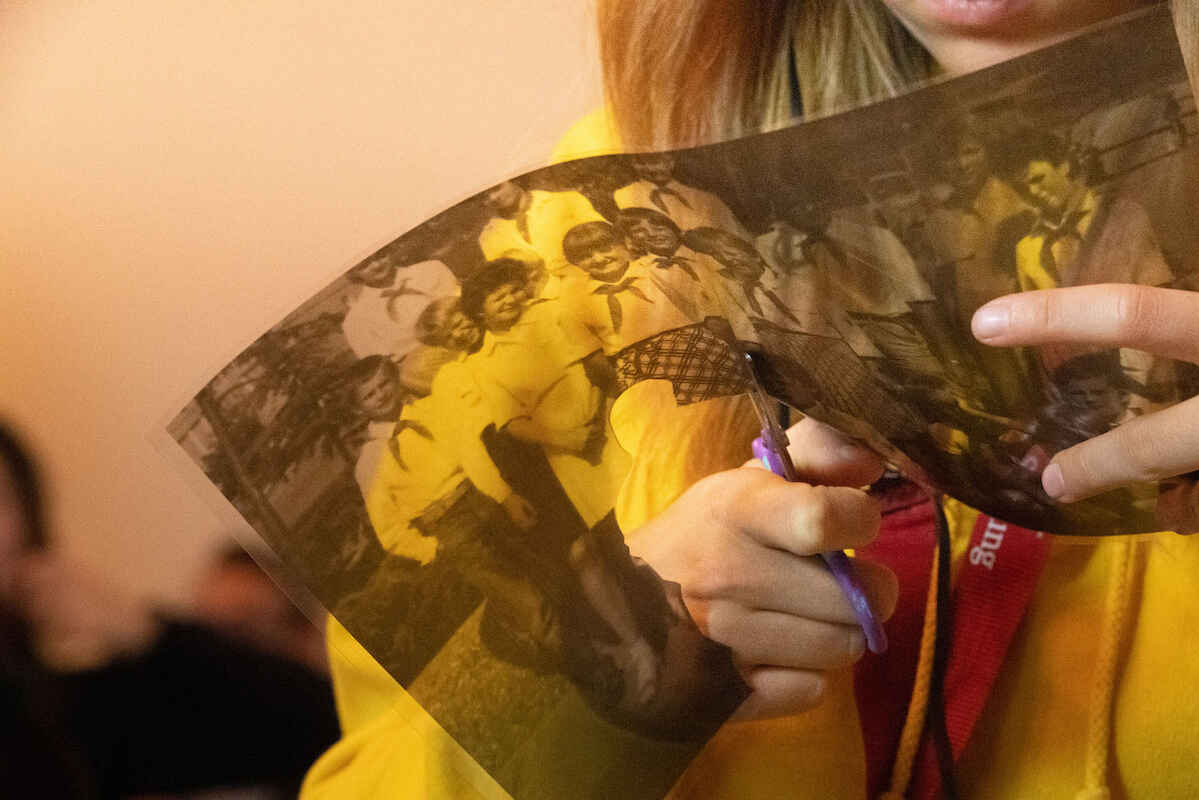
Photo: David Ausserhofer 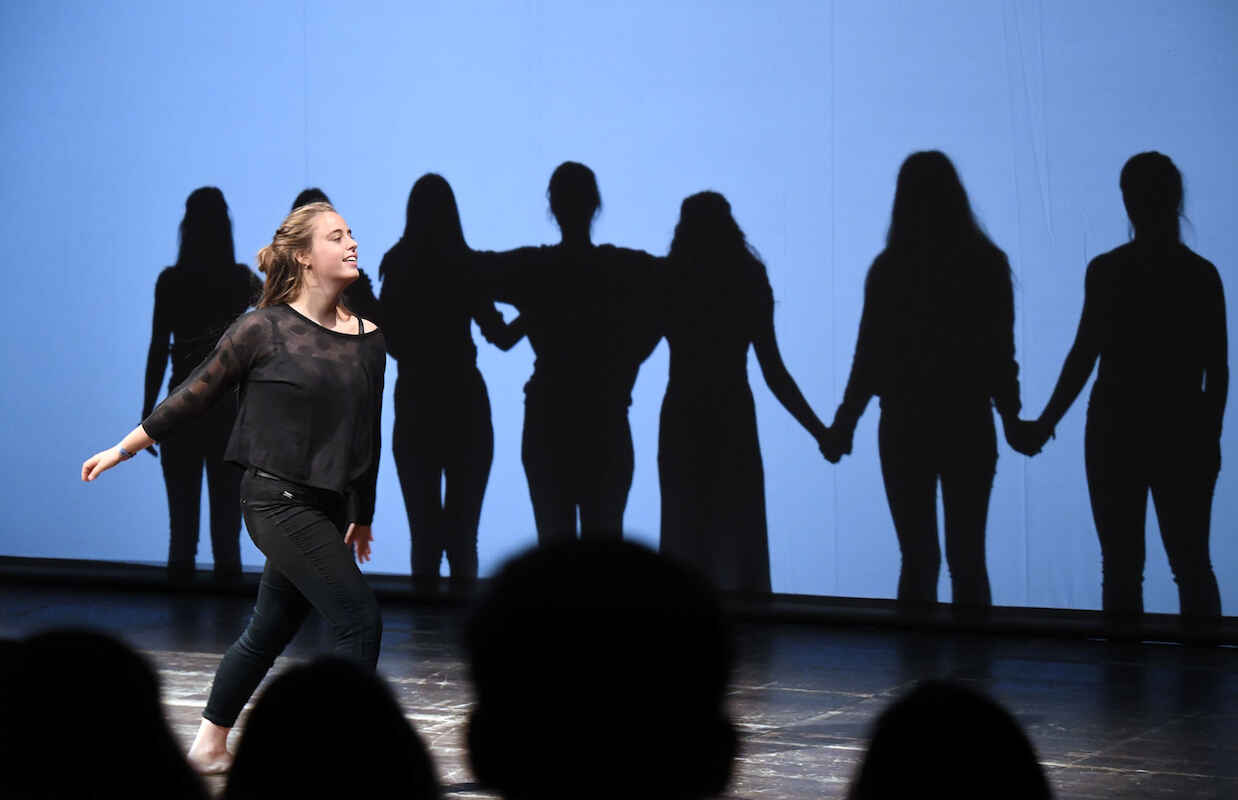
Photo: David Ausserhofer 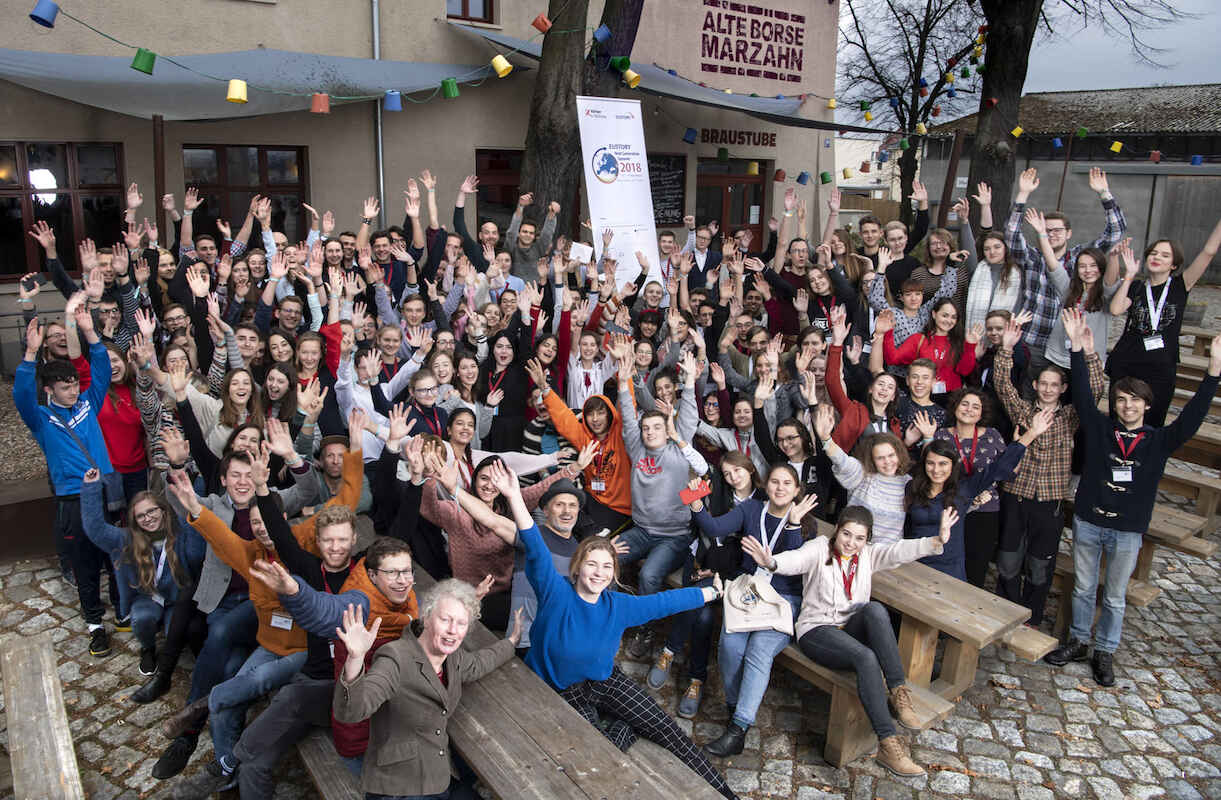
Photo: David Ausserhofer
EUSTORY Summit 2023
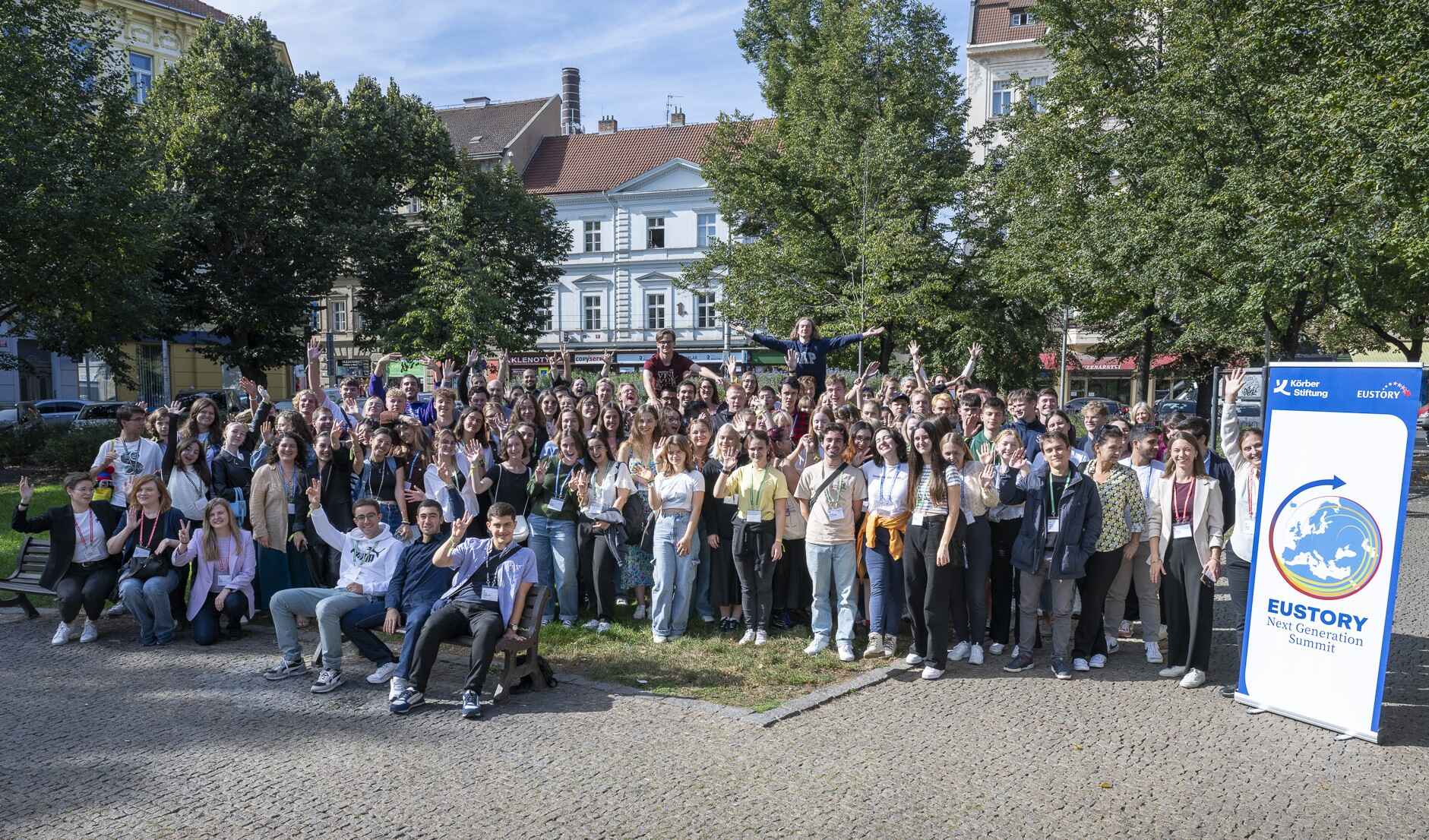
Dialogues to Remember
In autumn 2023, it was time to talk – and to meet! After three years of pandemic-related EUSTORY Youth Activities in the digital space, the EUSTORY Next Generation Summit 2023 returned in a new shape: Under the motto “Dialogues to Remember” we welcomed more than 100 winners from 23 national history competitions of the EUSTORY Network to our international youth history festival. In six parallel workshops conducted by different international partner institutions, as well as in numerous intercultural group activities, participants aged 16 to 25 engaged with history and its legacies, talked about identities and discussed their concerns related to a grueling war in Europe, but also shared their visions for a peaceful future.
What opportunities and risks does artificial intelligence pose for historiography and commemoration? How does one deal with history carved in stone? Can dialogue and creativity really transform conflict into peace? What values and narratives unite European youth across borders? These and other questions were discussed and put to the test using various methods and tools. Always in focus: cross-border dialogue in various forms and facets, because: Without dialogue and exchange of perspectives, there is no international understanding.
Insights into the single workshops and project results can be found here.
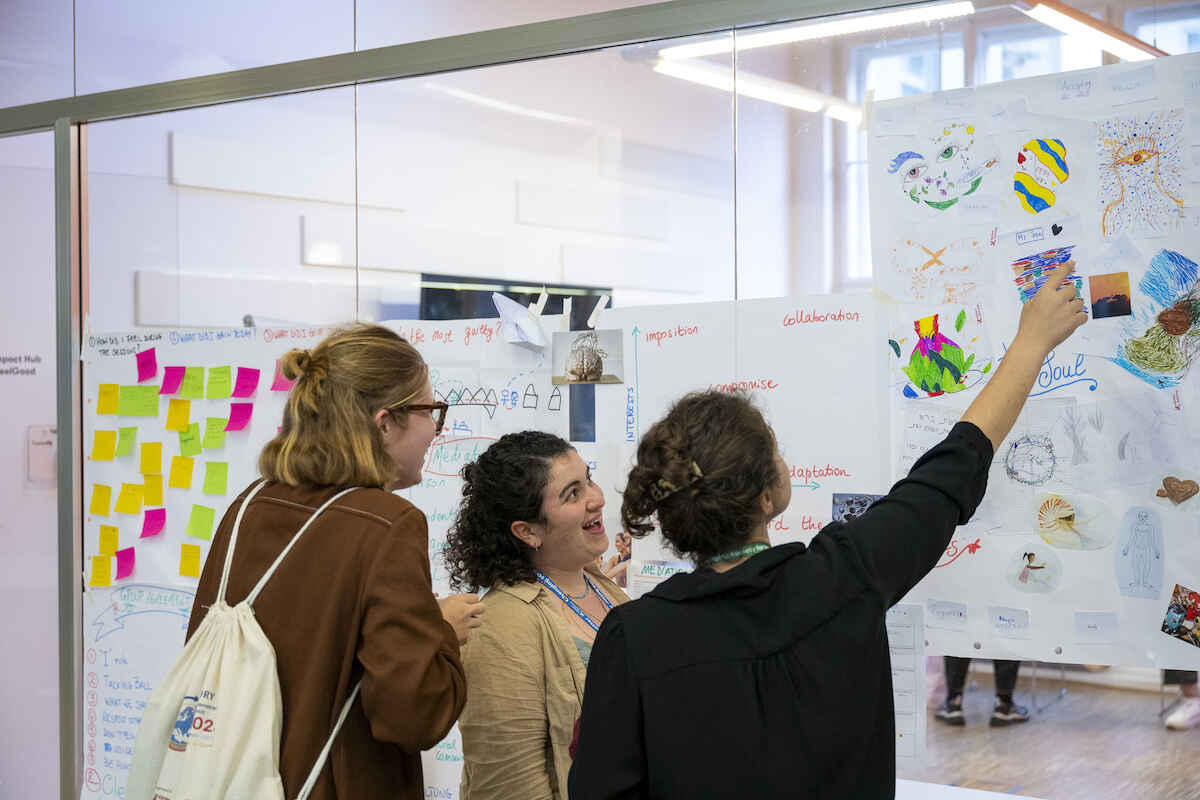
Photo: David Kumermann 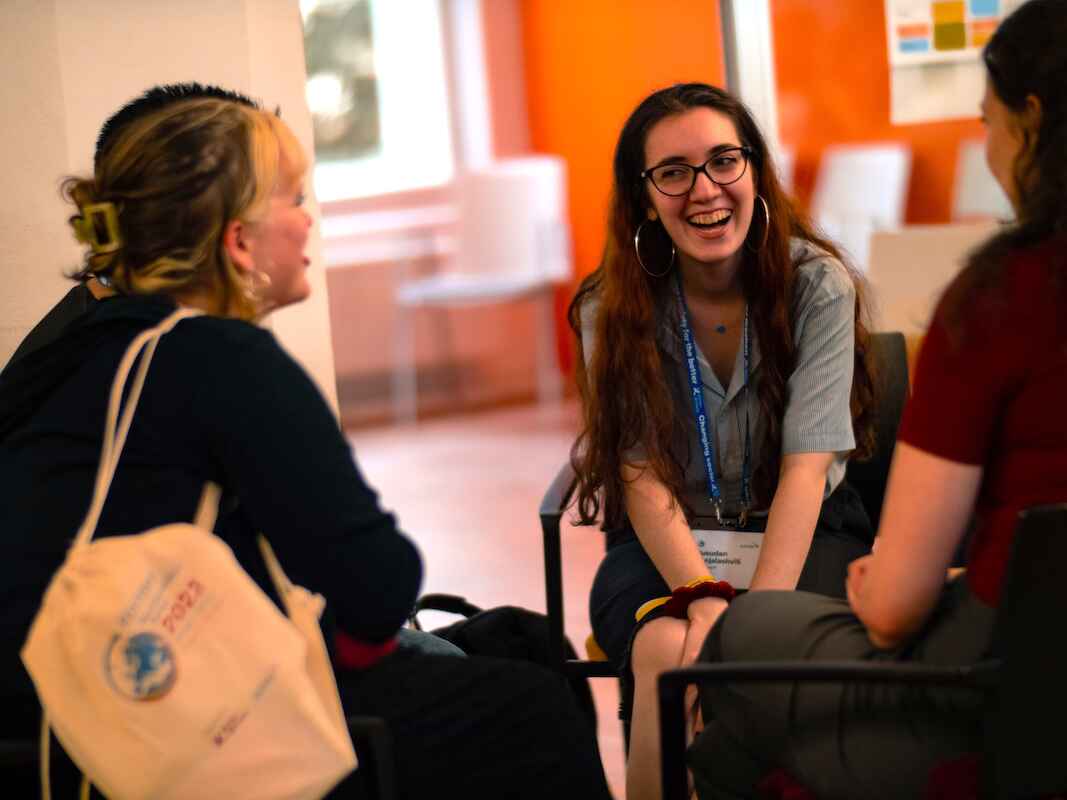
Photo: Körber-Stiftung 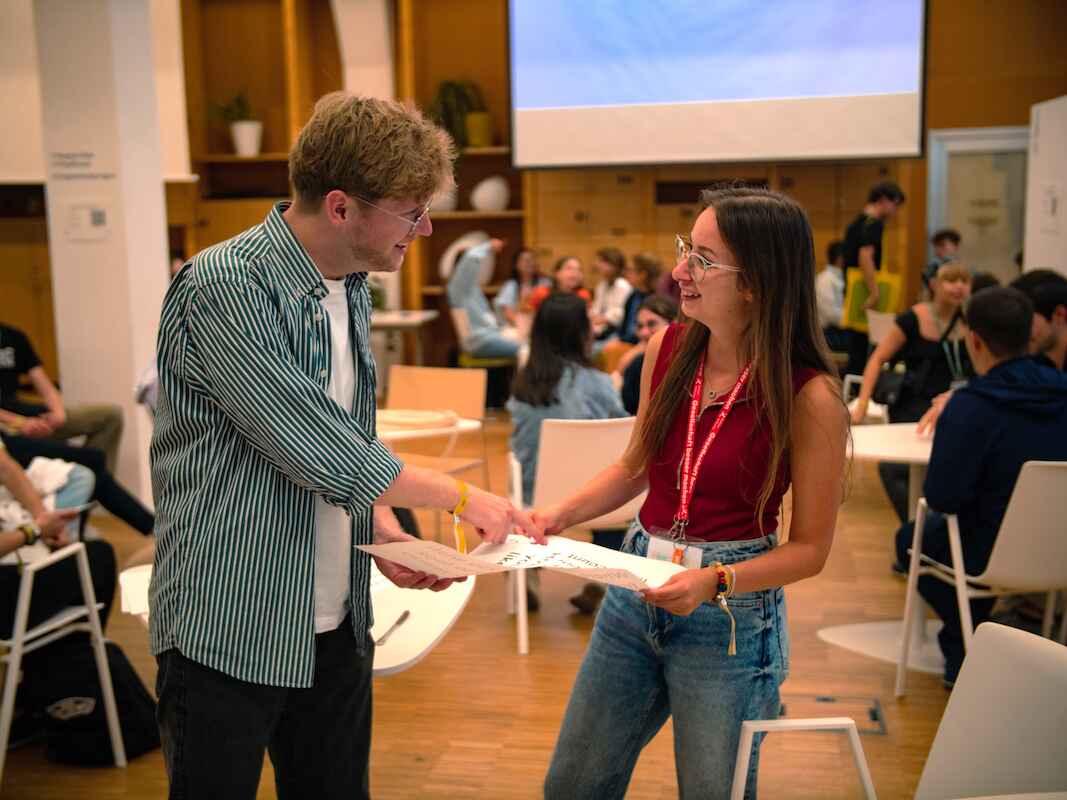
Photo: Körber-Stiftung 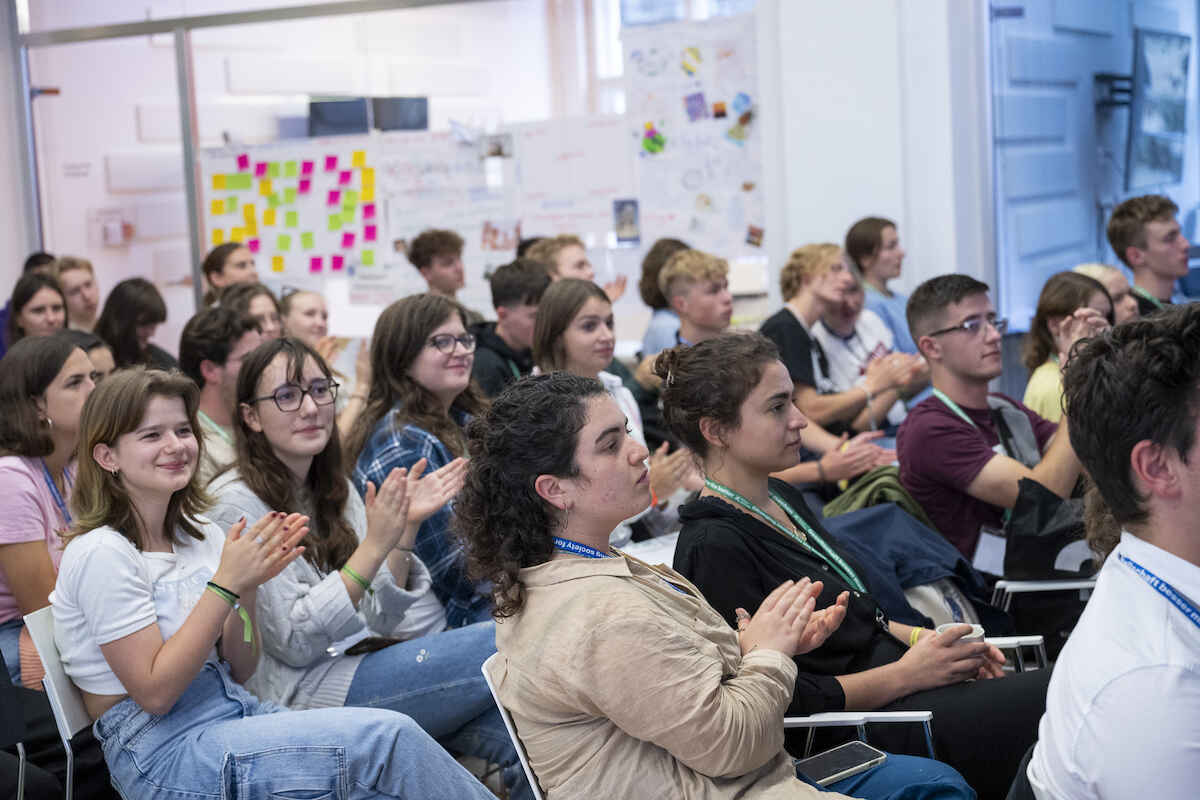
Foto: David Kumermann 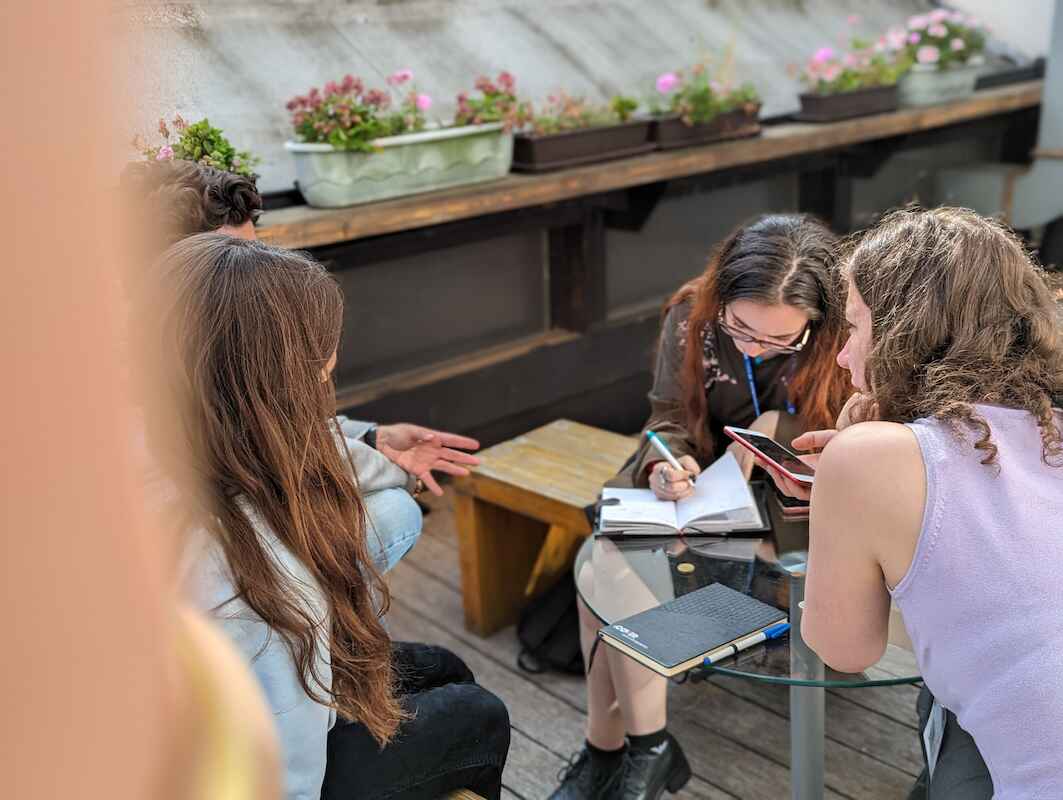
Foto: David Kumermann 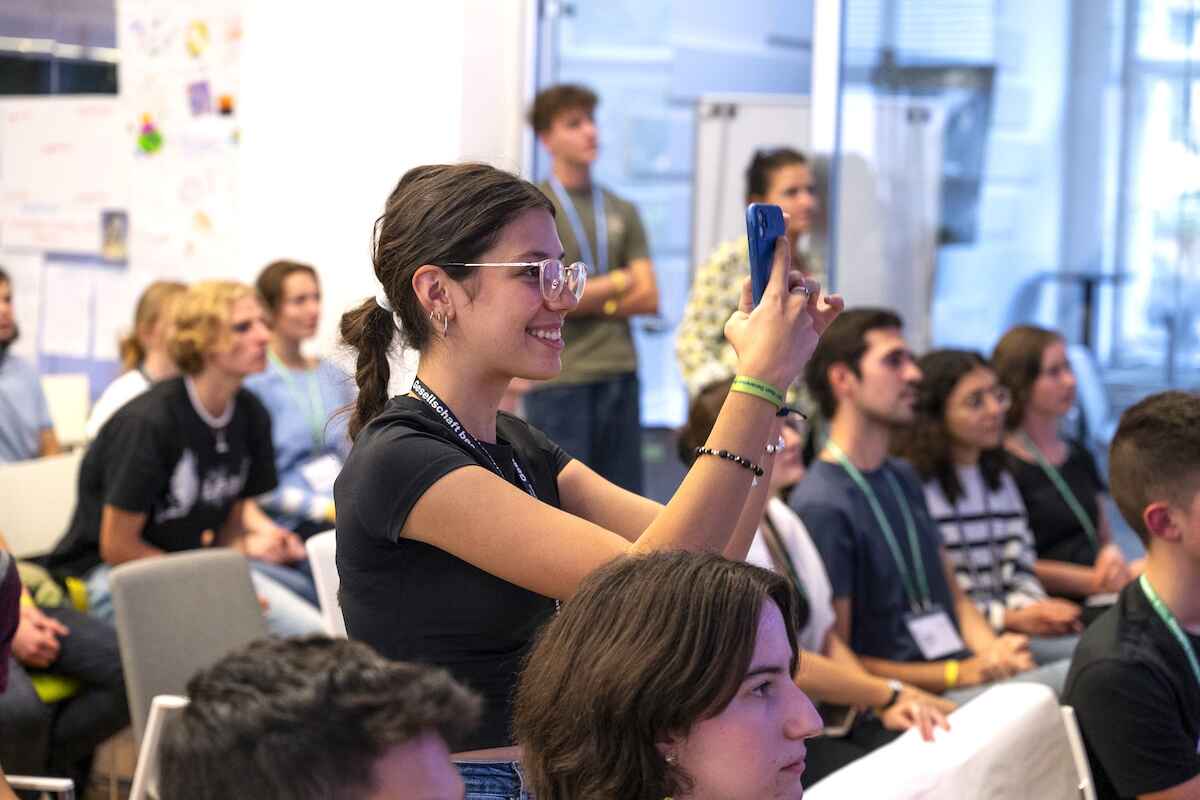
Foto: David Kumermann 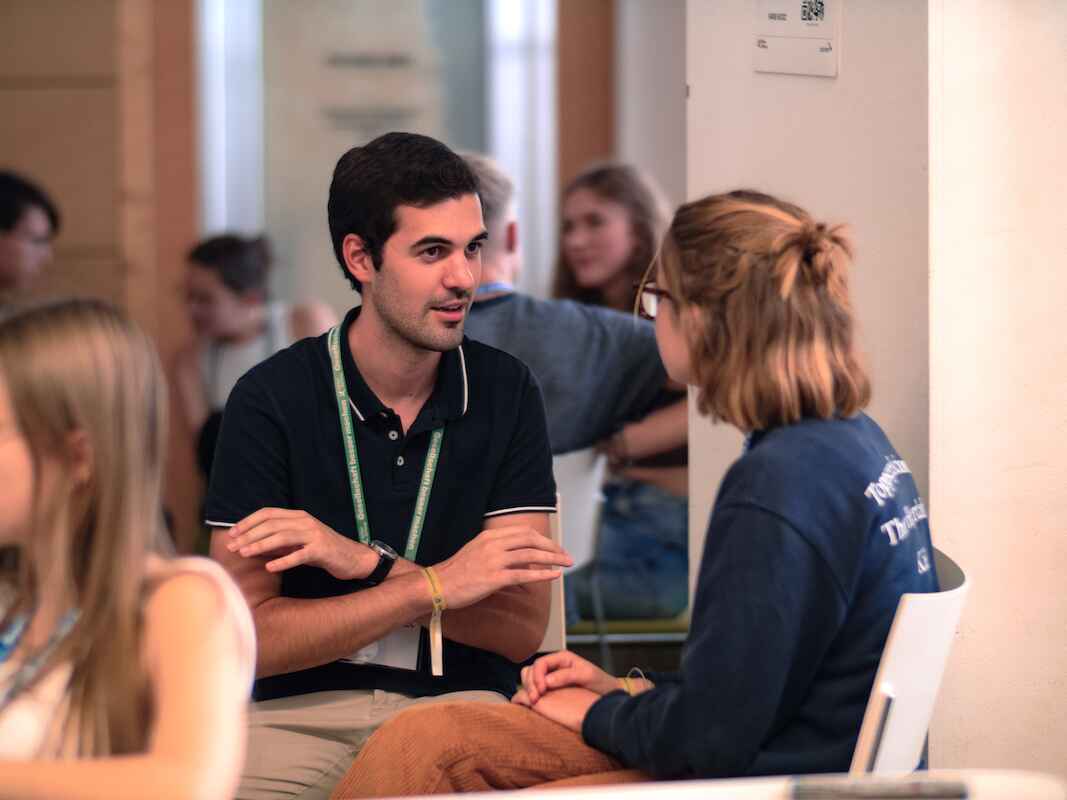
Photo: Körber-Stiftung 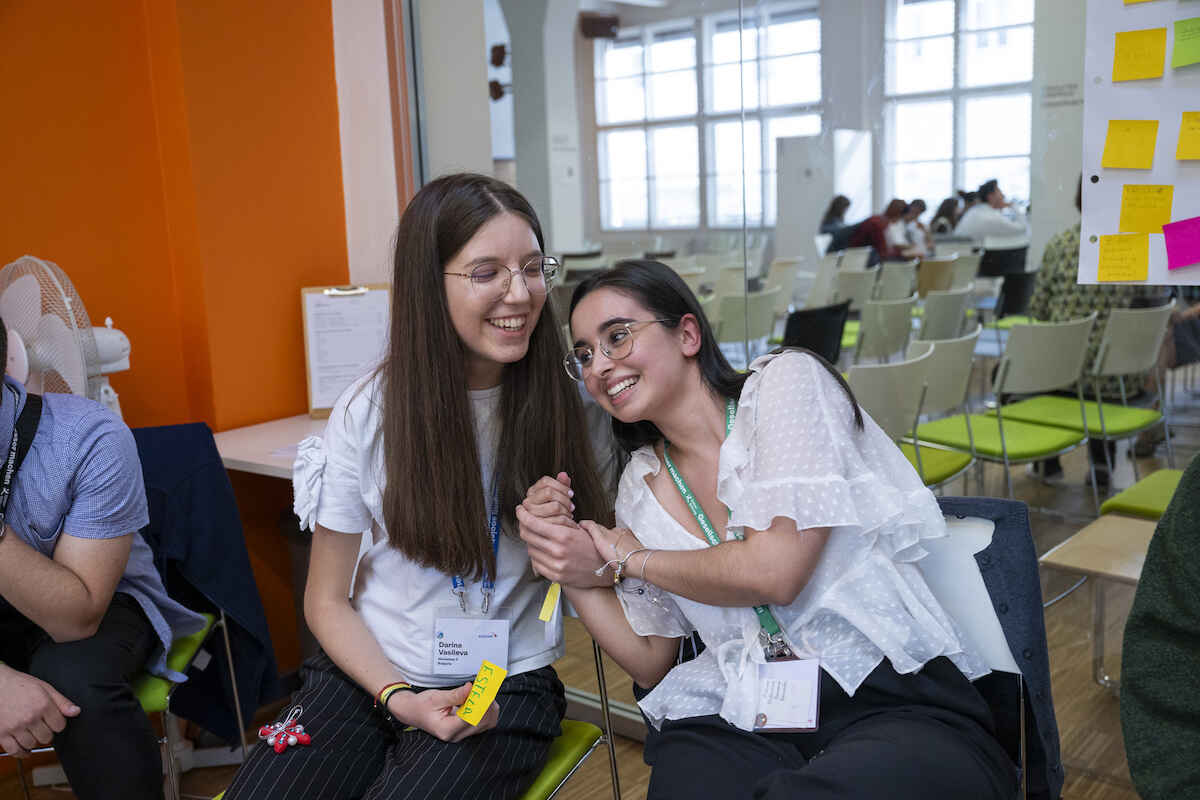
Foto: David Kumermann
EUSTORY Summit 2019
What remains of 1989/91 today?
Winds of Change – Transitions in Europe
For young Europeans born after 1989/1990, the end of the Cold War is history. But the consequences of this turning point are still tangible for them today. This was demonstrated from 15 to 19 October in Berlin, when 120 young people from 29 countries in Europe and its neighbouring countries came together for the EUSTORY Next Generation Summit 2019 to reflect on the topic of “Winds of Change – Transitions in Europe” across borders in eight workshops.
How did people experience the transition period and what is left of the dream of a united Europe? 30 years after the fall of the Iron Curtain, the participants not only explored the stories of their own family, region or home country, but also ventured into cross-border dialogue on topics that are still conflictual today: How do people deal with disappearing or shifting borders that separated societies for decades? What methods can subsequent generations develop to come to terms with traumas and tense aspects of the past? How can young people use history not only as a bone of contention but as a starting point for international understanding?
In their workshops, the participants, together with experts from art, culture, journalism and science, intensively and creatively dealt with various aspects of political transformation processes in Europe. The focus was not only on Eastern and Central Europe; the participants, aged 16 to 25, also looked at the Spanish “Transición” of the 1970s and at the Western Balkans after the collapse of Yugoslavia in the 1990s. They presented the results of their work as a multimedia video presentation, a walk-in audio installation and a theatre production of the remembered, forgotten and repressed.
More information and all project results of the EUSTORY Summit 2019 can be found here.
What is the state of democracy in Europe and the European project 30 years after the fall of the Iron Curtain? In the context of the EUSTORY Summit 2019, the US-American opinion research institute Pew Research Center presented the results of its international opinion poll for the first time, in which 19,000 people in 14 European countries were surveyed.
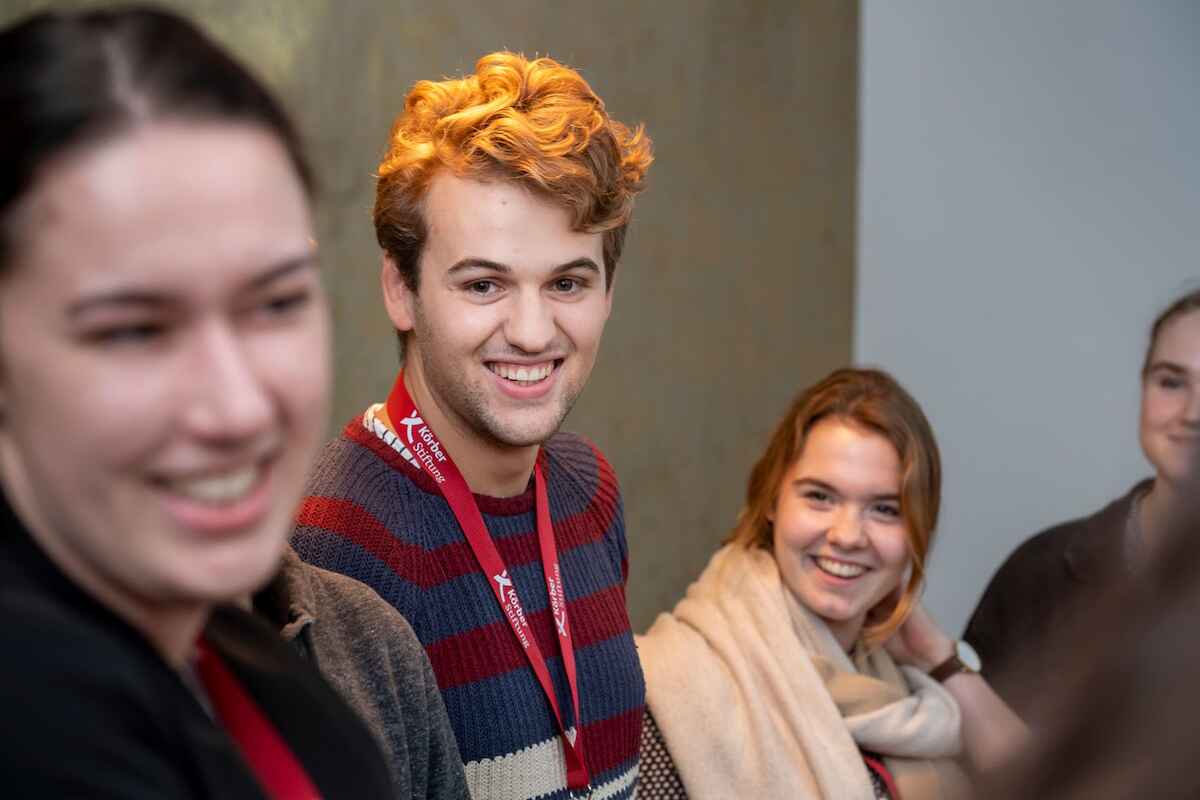
Photo: David Ausserhofer 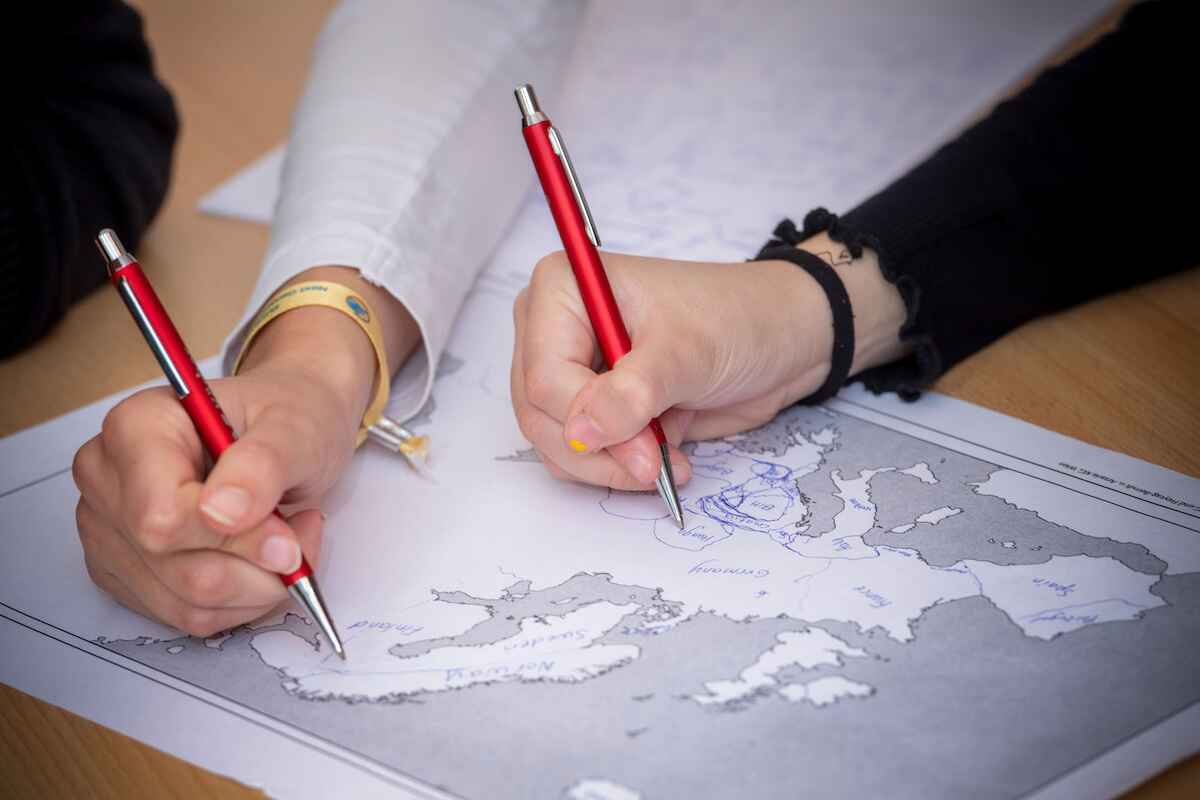
Photo: David Ausserhofer 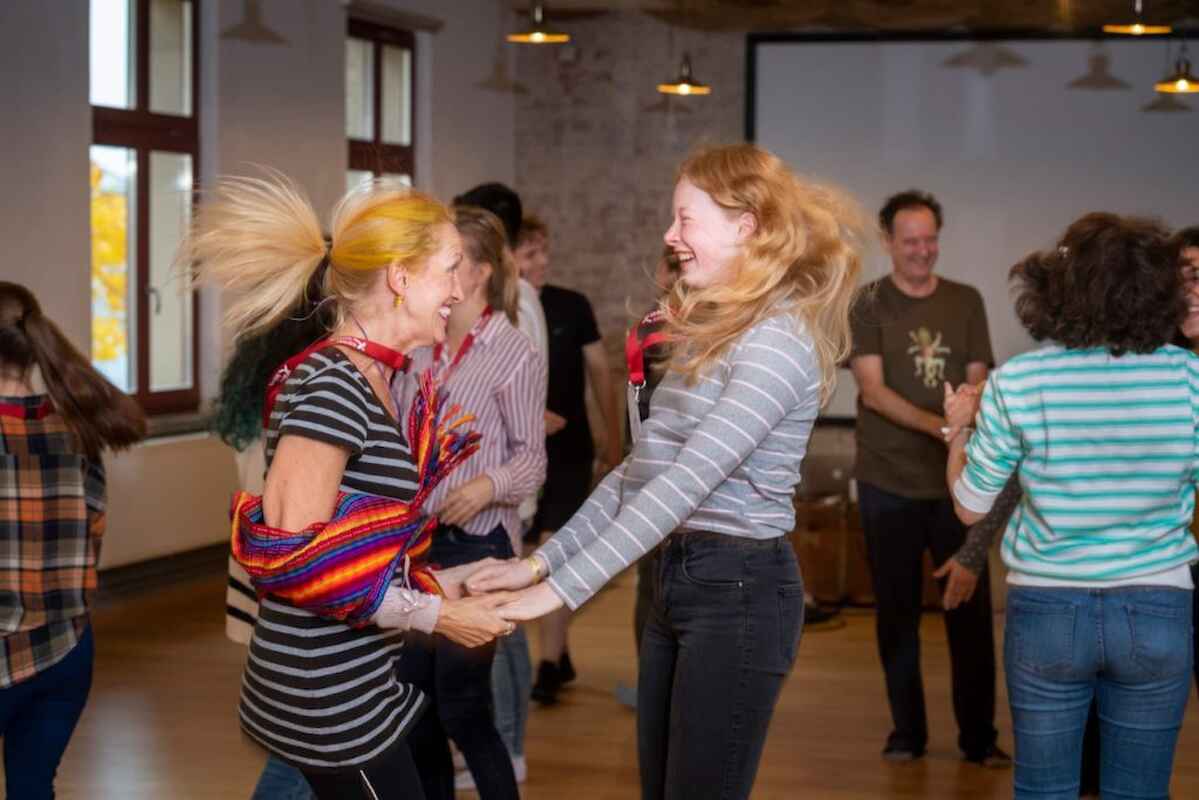
Photo: David Ausserhofer 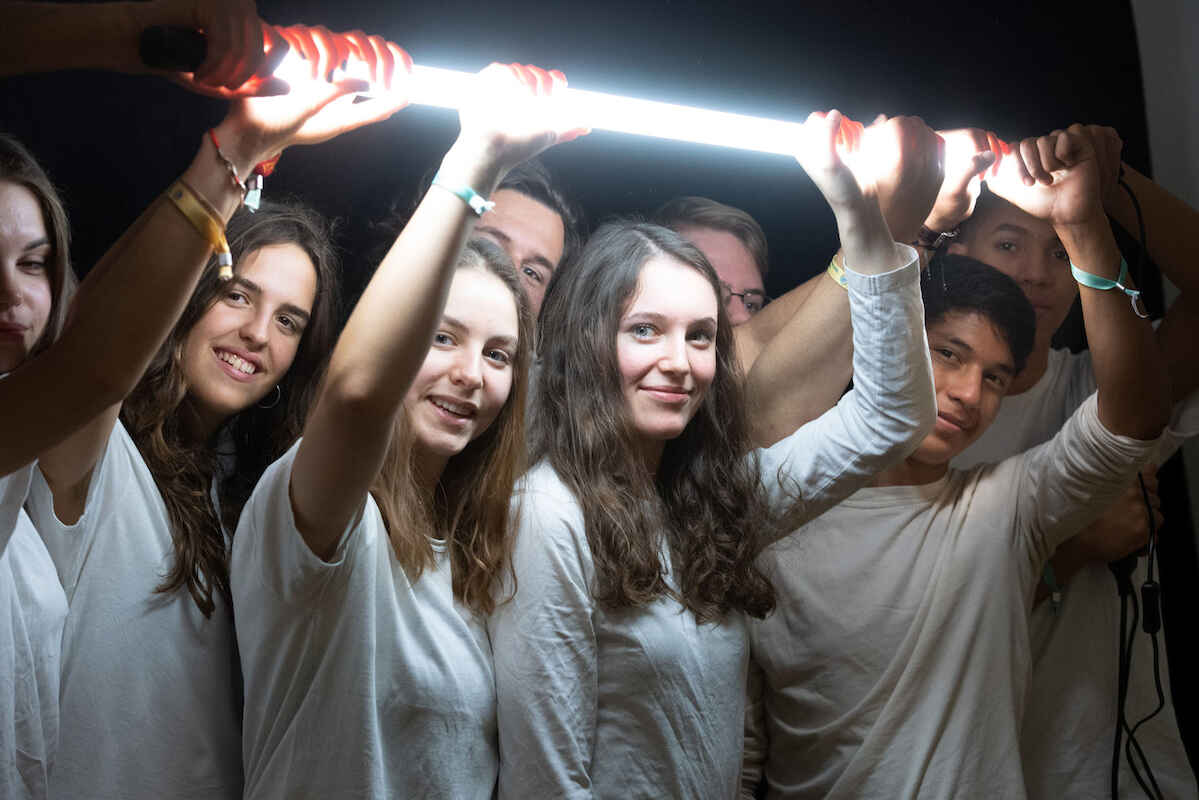
Photo: David Ausserhofer 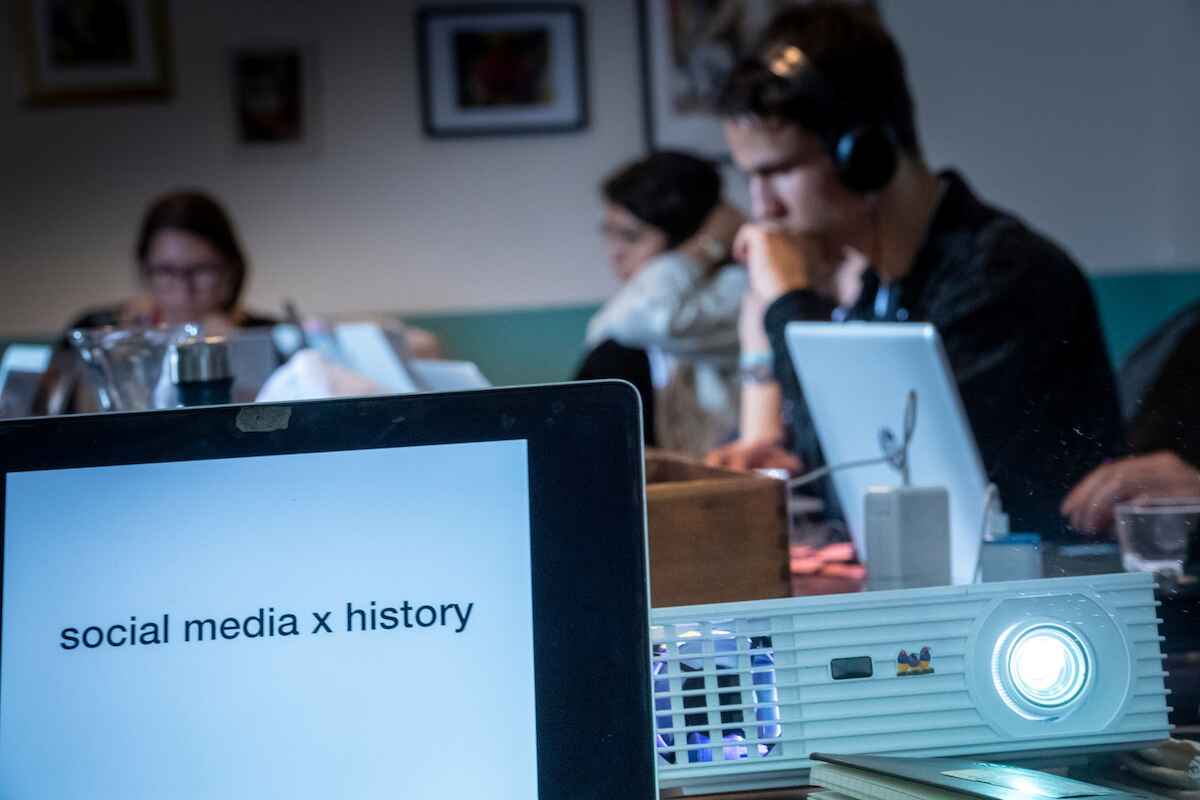
Photo: David Ausserhofer
EUSTORY Summit 2018
Participants of the Summit 2018 on the “Value of Europe”
Making Peace With History
100 years after the end of the First World War, the EUSTORY Next Generation Summit 2018 focused on war and peace in Europe. 120 winners and alumni of history competitions from 25 European countries met in Berlin from 14 to 19 November 2018. Under the motto “Making Peace With History” they searched for ways of cross-border understanding.
How does it work, making peace or keeping peace? In 2018, Summit participants dealt with various aspects of this question in seven different workshops. How was peace negotiated after catastrophic wars such as the Thirty Years’ War or the First World War? How do societies deal with the remembrance of victims, but also with guilt and perpetration today? And what can the individual actually do?
Based on their own family history and together with cooperation partners from science, culture, journalism and politics, the participants of all workshops dealt with the question of where historical experiences with war and peace are still relevant today – in families, places or countries of origin. They presented their answers in the form of performances, short films, art installations and in a comic.
The EUSTORY Summit 2018 kicked off with the “Youth for Peace” event in cooperation with the Franco-German Youth Office (DFJW) under the patronage of the German Federal Foreign Office and the French Mission du Centenaire. 750 young people and guests came together for this event in the Bölle Festsäle in Berlin.
More information and all project results of the EUSTORY Summit 2018 can be found here.
Video installation to kick off the event “Youth For Peace” during the EUSTORY Summit 2018
EUSTORY Summit 2017
Participants about their EUSTORY Summit 2017
Re:member Europe
Which keys does history hold for understanding the present? How can we shape the future together against the backdrop of historical experience? These questions were addressed by 100 prize winners from more than 20 national history competitions of the EUSTORY Network at the first EUSTORY Summit from 6 to 10 October 2017 in Berlin.
The motto: “Re:member Europe”.
“If we don’t talk to each other, we live in the same world but are separate. We have to make an effort to understand each other,” said participant Elena from Spain. She and her international peers took the chance in one of six workshops to exchange ideas on current challenges across borders, while also looking at the historical causes in order to develop creative approaches to remembrance and visions of a common future.
With the support of professional dramaturges, musicians and museum educators, the participants developed unusual and artistic productions: Historical and current experiences of violence found expression on stage through dance, music and poetry; biographical stories shaped by migration and persecution were made comprehensible through a staged reading, and a video animation visualised the shared historical heritage as memory and opportunity for the future. The question of how populists misuse collective memory and emotional images and in which ways the young generation can counter political radicalisation in the media was addressed in a panel discussion at the end of the Summit.
The conclusion: Young Europeans have the courage to change. Many of them want to become active and shape their own future in Europe – the EUSTORY Summit 2017 offered the first step in this direction.
More information and all project results of the EUSTORY Summit 2017 can be found here.
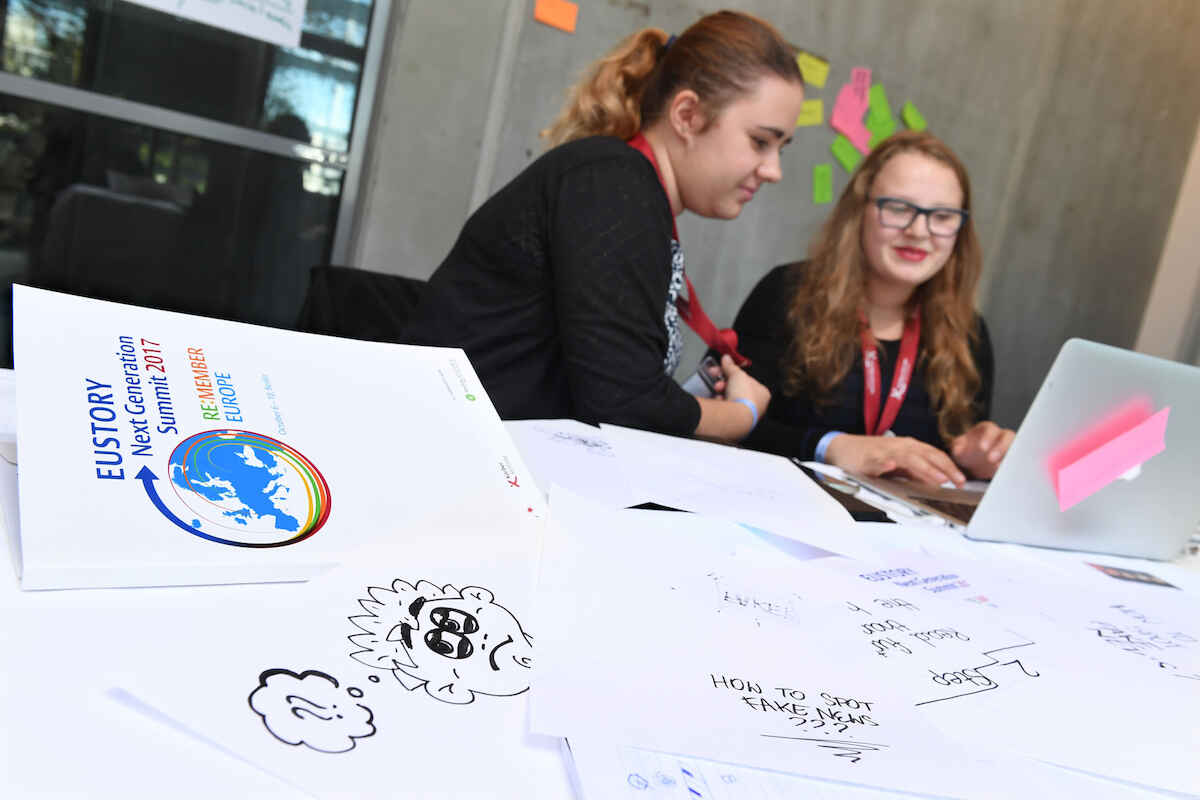
The EUSTORY Summit 2017 in pictures Photo: David Ausserhofer 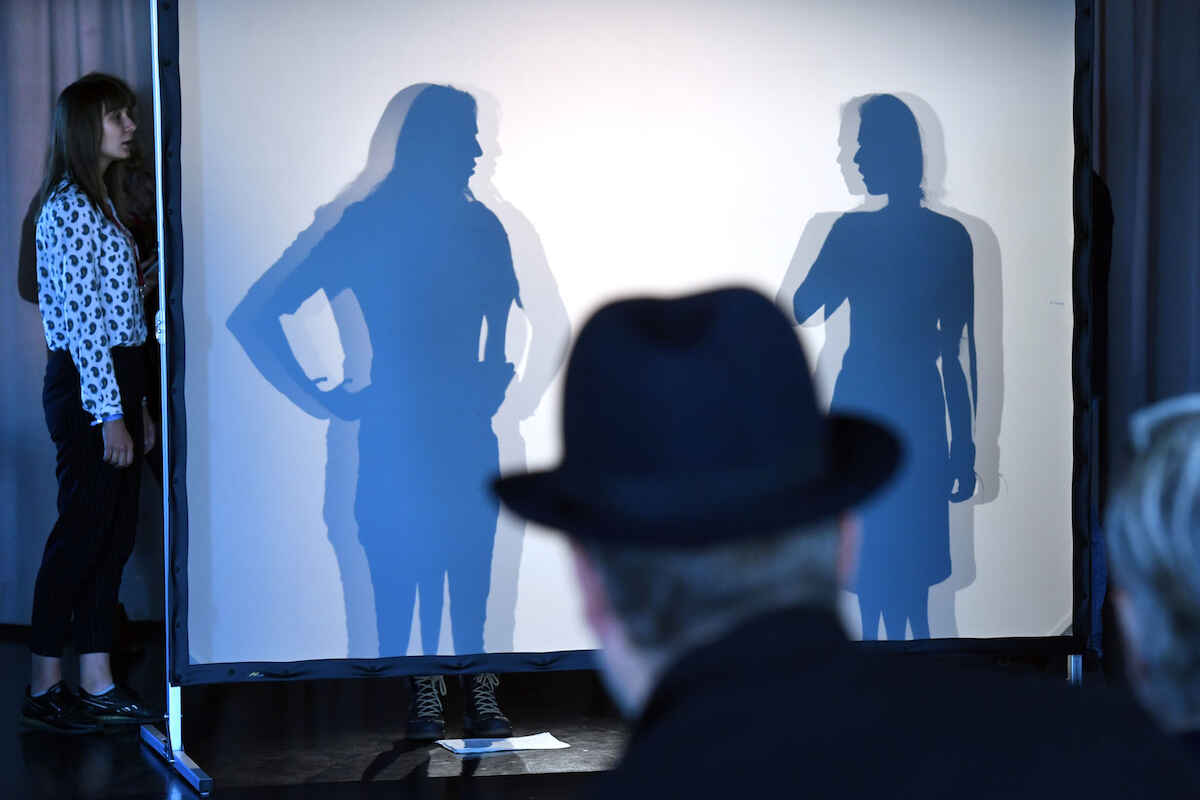
Photo: David Ausserhofer 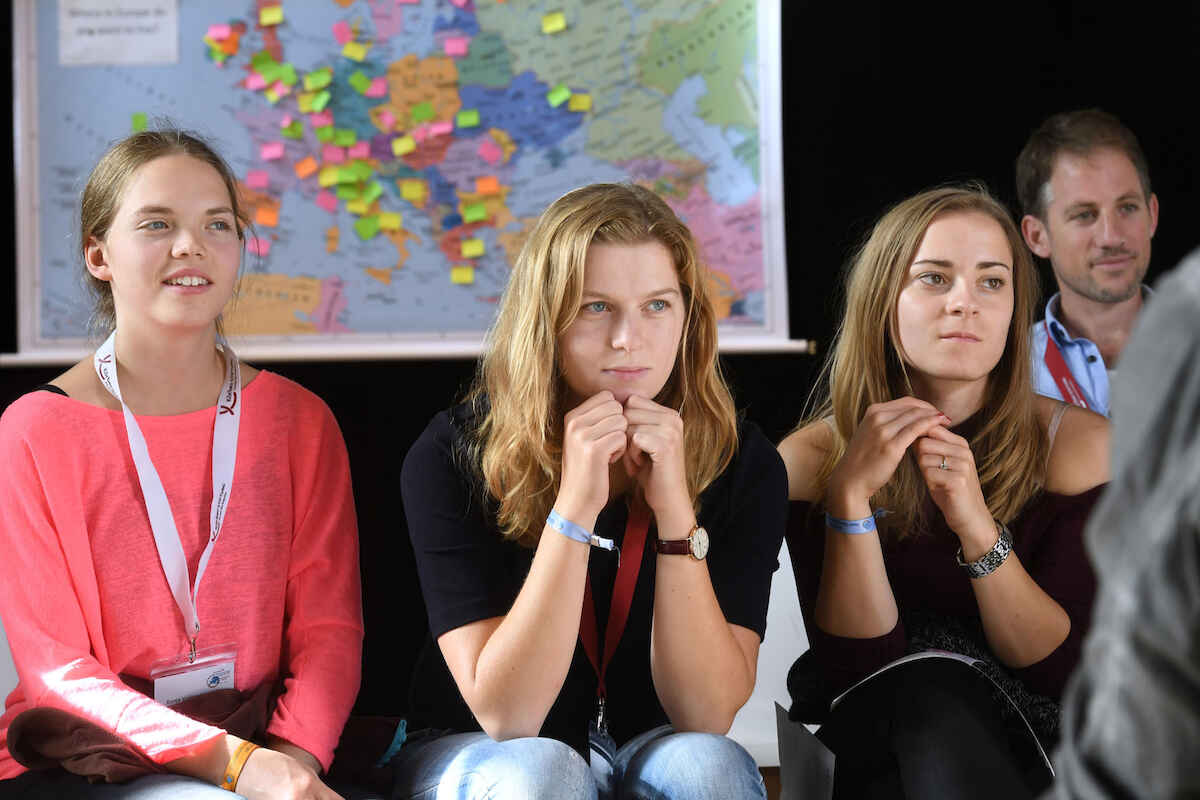
Photo: David Ausserhofer 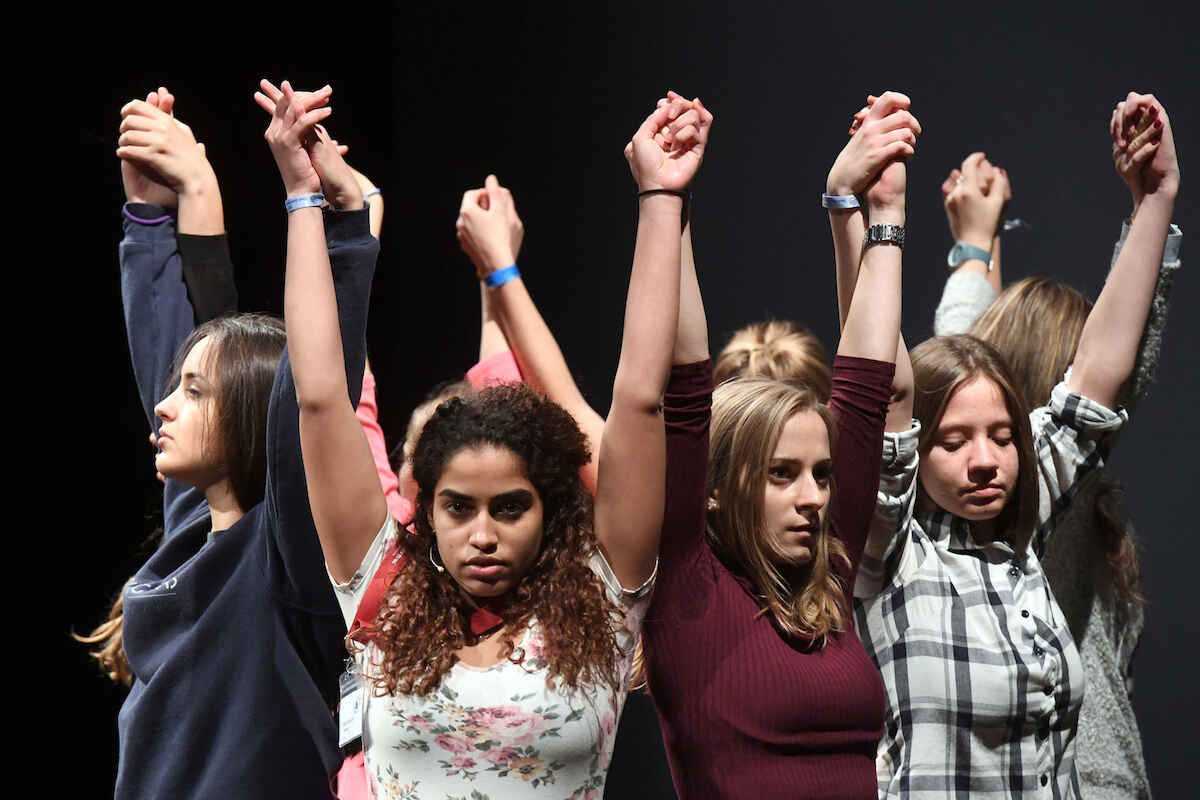
Photo: David Ausserhofer
Europe 14|14
Look Back, Think Forward
What is the significance of the First World War for young Europeans personally, for their home countries and for present and future Europe? 400 young Europeans went in search of answers at the history festival “Europe 14|14”: Look Back, Think Forward” from 7 to 11 May 2014 in Berlin.
The core of the history festival Europe 14|14, which took the 100th anniversary of the outbreak of the First World War as an occasion for cross-border exchange, was the HistoryCampus with its 22 workshops at the Maxim Gorki Theatre in Berlin.
Participants from Europe and beyond approached the question of what “remembering” means for each individual, but also for a united Europe. Through different approaches and by means of interactive, creative formats, they questioned national perspectives on the First World War, discussed them and traced the consequences of the war in the Europe’s collective memory.
A special highlight for the participants: The exchange with German Chancellor Angela Merkel and German Foreign Minister Franz-Walter Steinmeier, who encouraged the young Europeans to “plunge into the adventures of the European novel, study its previous chapters and write its continuation”.
Europe 14|14 was a joint project of Körber-Stiftung, the Federal Agency for Civic Education and Robert Bosch Foundation in cooperation with the Maxim Gorki Theatre Berlin and numerous other partners.
